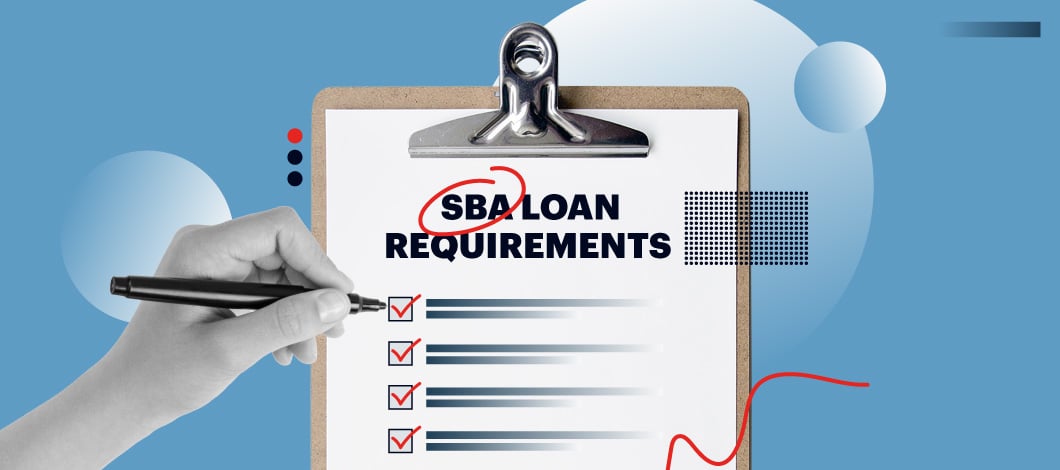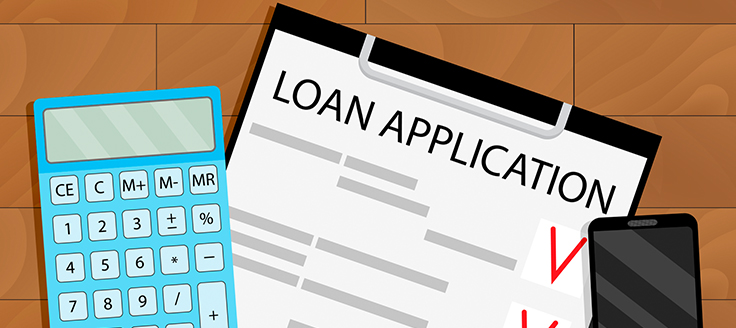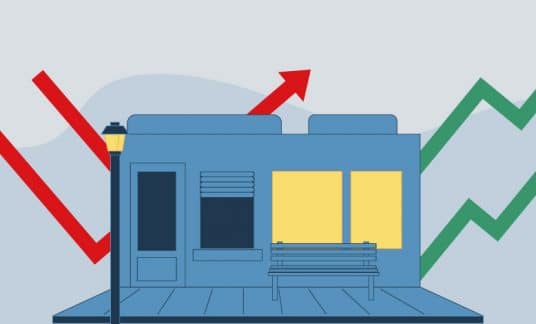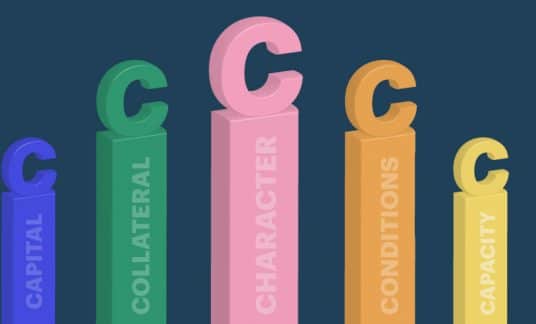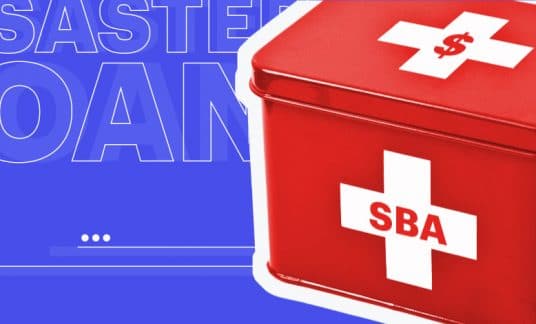As a reliable, affordable business financing option, SBA loans — those partially guaranteed by the Small Business Administration — are invaluable to many entrepreneurs. So, how do you go about getting one?
First off, find out if you qualify. To that end, we’ll walk you through SBA loan requirements and eligibility criteria as well as what you need to apply.
SBA Eligibility Requirements
To be able to apply for the agency’s flagship 7(a) loan program, a business must meet the following SBA loan eligibility criteria:
- Be a for-profit venture
- Have reasonable owner equity to invest
- Demonstrate a need for the loan
- Use the funds for a valid business purpose
- Not be delinquent on existing debt obligations with the U.S. government
- Must have used other financial resources first, including personal assets
- Currently (or will be) conducting business in the U.S. or its territories
Note that the same SBA loan qualifications for the 7(a) program apply for those interested in the microloan program, which provides funding of up to $50,000. Note that microloan funds can’t be used to buy real estate or pay existing debt.
-
Types of SBA 7(a) Loans
Keep in mind there are several types of 7(a) loans, including:
- Standard 7(a) loan
- 7(a) small loan
- SBA Express loan
- Export Express loan
- Export working capital loan
- International trade loan
- Preferred lenders loan
- Veterans advantage loan
- CAPlines (line of credit)
To be eligible for a 504 loan, another popular SBA-backed financing option designed to promote job creation, you’ll need to meet the following requirements in addition to operating as a for-profit business in the U.S. or its territories:
- Less than $15 million tangible net worth
- After federal income taxes, less than $5 million in average net income for the 2 years before application
- Funds cannot be used for refinancing or consolidating debt, speculation or investment in real estate, working capital or inventory
Moreover, all applicants must meet the SBA’s size standards.
-
Lender-Specific SBA Business Loan Requirements
It’s important to note that SBA loans aren’t actually provided by the SBA. Rather, you’ll need to apply with a lender that partners with the government agency. That said, your lender may have additional qualification requirements you’ll need to meet.
SBA Loan Conditions for Certain Companies and Individuals
The SBA has set forth certain conditions for the following special circumstances:
- Franchises: “Eligible except when a franchiser retains power to control operations to such an extent as to equate to an employment contract; the franchisee must have the right to profit from efforts commensurate with ownership.”
- Clubs and recreational facilities: “Eligible if the facilities are open to the general public, or in membership-only situations, membership is not selectively denied or restricted to any particular groups.”
- Agricultural businesses and farms: “Eligible, but these applicants should first explore Farm Service Agency (FSA) programs, particularly if the applicant has a prior or existing relationship with FSA.”
- Fishing vessels: “Eligible, but those seeking funds for the construction or reconditioning of vessels with a cargo capacity of five tons or more must first request financing from the National Marine Fisheries Service.”
- Privately owned medical facilities: “Hospitals, clinics, emergency outpatient facilities, and medical and dental laboratories are eligible; recovery and nursing homes are also eligible, provided they are licensed by the appropriate government agency and they provide more than room and board.”
- Eligible Passive Company: “Must use loan proceeds to acquire or lease, and/or improve or renovate, real or personal property that it leases to one or more operating companies and must not make any profit from conducting its activities.”
- Legal aliens: “Eligible; however, consideration is given to status (e.g., resident, lawful temporary resident) in determining the business’s degree of risk.”
Businesses Ineligible for SBA Loans
If you want the competitive terms offered by SBA-guaranteed loans, you need to ensure that your business doesn’t belong to an ineligible industry.
The following types of businesses are unable to qualify for SBA loans:
- Gambling
- Life insurance companies
- Pyramid sales plans
- Multi-sales distribution
- Real estate investment firms (when the property will be held as an investment as opposed to a property the business will occupy)
- Loan packaging businesses and those involved in lending
- Consumer and marketing cooperatives
- Speculative businesses (e.g., oil exploration)
- Dealers of rare stamps and coins
- Government-owned organizations
- Nonprofits or religious institutions
Although it may seem obvious, businesses engaged in illegal activities are also ineligible. Additionally, 20% or more of the business cannot be owned by someone who has been in jail, on parole or indicted for a felony or crime of moral depravity.
What’s Ineligible?
The SBA notes the following as ineligible:
- A firm that caused the government to have experienced a loss related to a previous business debt
- Business in which 20% or more is owned by someone who was involved with another company that led to the government to incur a loss on a previous business debt
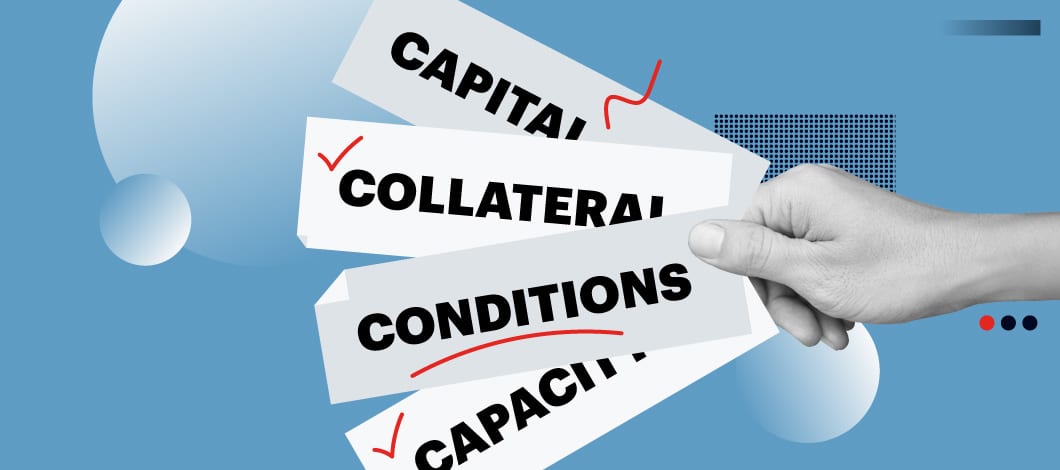
SBA Loan Criteria and Details Needed to Apply
SBA loan requirements can vary according to your business’s industry and the amount of time it’s been in operation. However, lenders typically take into account what’s known as the 5 C’s of credit: capital, collateral, character, conditions and capacity.
To that end, here’s what lenders look for when you’re applying for an SBA loan:
SBA Loan Credit Requirements
Your credit scores indicate to creditors and lenders that you and your company can be trusted to repay debts. However, many entrepreneurs and small business owners don’t realize the difference between personal credit scores and business credit scores when applying for an SBA loan.
A 650 or higher personal credit score is needed to qualify for an SBA loan through Fast Capital 360’s partner lenders, for example.
And while personal credit is important, you should have a good business credit score if possible. If you don’t have any business credit history, you won’t be automatically disqualified. However, your application will be reviewed more carefully and it may be a bit more difficult to qualify.
SBA Loan Submission Requirements
Some of the items you’ll likely need to provide your lender when you’re applying for an SBA loan include the following:
- Personal information of applicant(s)
- List of company owners and percentage of ownership
- Financial statements (e.g., bank statements, balance sheets, profit-and-loss statements)
- Tax returns
- Articles of incorporation or organization
- Documentation of lawsuits and legal judgments
- Business contracts, agreements and licenses
- Personal guarantee (from anyone owning 20% or more of the business)
- Collateral (not required for SBA loans of $25,000 or less)
In Addition
SBA lenders also will need to know what you plan to use the loan proceeds for. Therefore, it’s critical to create a business plan that outlines exactly where the money is going to be spent.
Not only should the plan include your funding request, but how long you expect to need the money. Additionally, ensure your plan includes an executive summary of your business and its organizational structure as well as a description of the product or service you’re offering.
SBA loan requirements for an existing business should also include growth forecasts supported by proof the expected growth is achievable, while SBA loan requirements for a new business should include cash-flow projections.
Start Preparing to Meet SBA Loan Requirements
In 2020, the SBA approved $22.6 billion in 7(a) loan funds alone. This led to the funding of 42,302 loans.
If you want to be one of the small businesses included in the next tally, be sure to prepare to meet the SBA’s eligibility requirements and loan criteria. Some ways you can do this include organizing your business documents and improving your credit score.
Securing Your Loan (And Avoiding Mistakes)
As a small business owner, securing funding can feel like you’re being made to jump through hoops. Keeping a business afloat is difficult enough—coming up with the money to get it off the ground shouldn’t be.
Thankfully, small business loan requirements can be easily met with the right amount of preparation. With the right documents prepared and a long-term business plan in writing, you’re well on your way to applying for an SBA loan. Although they might test your patience, SBA loans offer a low-risk, headache-free solution for getting your company the capital it needs.



